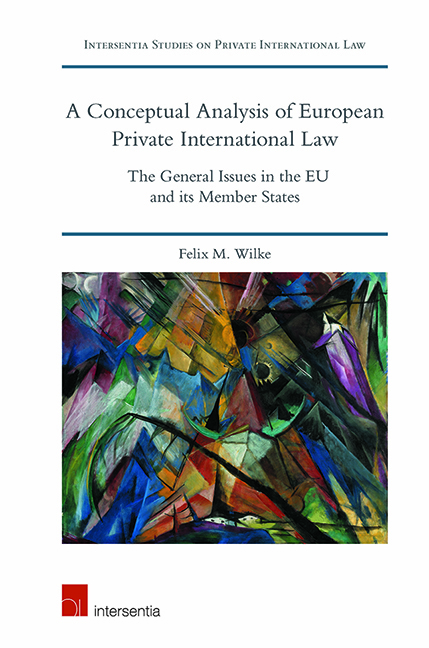 A Conceptual Analysis of European Private International Law
A Conceptual Analysis of European Private International Law Chapter 5 - Law
from PART III - STANDARDS
Published online by Cambridge University Press: 30 March 2019
Summary
To ask whether the EU can legally implement any of the approaches discussed above mainly means to ask the questions of competence and procedure. This is not the place to give the nth overview of the development of EU private international law. The issue is simply: can the EU make general rules of private international law pursuant to the TEU and TFEU?
COMPETENCE IN THE AREA OF PRIVATE INTERNATIONAL LAW
There seems to be general agreement that Article 81(2)(c) TFEU, with its reference to “the rules applicable in the Member States concerning conflict of laws”, pertains to rules that determine the applicable law. As a measure adopted on the basis of this article is not required to be necessary for the proper functioning of the internal market anymore, it can also encompass civil matters (arguably) without relevance for the internal market, such as family law. This statement finds further support in Article 81(3) TFEU – and found it in Article 67 TEC – that sets forth special rules for the establishment of measures concerning family law. That a lack of unanimity in the Council would entail that an area of private international law in family matters remains for the member states to deal with, does not mean that the EU does not have the competence in that area as a matter of principle; it just means that the EU was not able to make use of it in a certain matter yet. In sum, the EU can tackle all areas of private international law as a subject matter.
COMPETENCE FOR UNIFIED PRIVATE INTERNATIONAL LAW
Some scholars called into question whether Article 65 TEC gave the EU the competence to make unified provisions of private international law. They mainly relied on the wording of said provision as it only pertained to “promoting the compatibility of the rules applicable in the Member States concerning the conflict of laws”. As it is well known, EU legislative practice did not seem much concerned. It was not necessary, either, to read Article 65 TEC this narrowly.
- Type
- Chapter
- Information
- A Conceptual Analysis of European Private International LawThe General Issues in the EU and its Member States, pp. 303 - 318Publisher: IntersentiaPrint publication year: 2019


